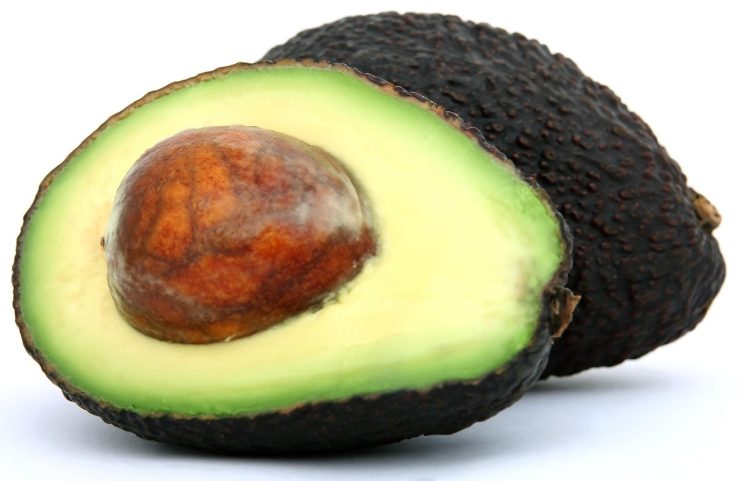Avocados: The Creamy Green Powerhouse with Surprising Health Benefits
Avocados have carved out a serious place in the world of health and weight loss. Popular in everything from Paleo diets to modern wellness bowls, their rise in popularity has been steady—and for good reason. While already known for being low in carbs and rich in nutrients like heart-healthy monounsaturated fats, fiber, and antioxidants, avocados continue to impress with even more potential health perks.
Over the past decade, avocado consumption has more than doubled in the U.S., with demand still on the rise. Most avocados found in stores are the creamy Hass variety, though over a thousand types exist globally. With supply fluctuations and growing demand, prices may be higher—but for many, the nutritional payoff makes them worth it.
1. Blood Sugar Support and Metabolic Health
Avocados may support stable blood sugar levels and improve insulin sensitivity—key factors in preventing metabolic syndrome and type 2 diabetes. Thanks to their low glycemic index and high healthy fat content, they don’t cause blood sugar spikes or the insulin surge that encourages fat storage. This combination can promote satiety and reduce cravings, making them a smart addition to weight management efforts.
Research published in Nutrition Journal (2013) found that avocado consumers tend to follow more balanced diets, have higher intakes of vitamins and minerals, and exhibit healthier body weights and BMIs. Additionally, regular avocado consumption was linked to a 50% lower risk of developing metabolic syndrome.
2. Cancer-Fighting Potential
Phytochemicals found in avocados have demonstrated cancer-fighting abilities in lab studies—comparable in some cases to chemotherapy. These compounds may help slow the growth of precancerous and cancerous cells and encourage their natural death (apoptosis).
Avocados also contain beta-sitosterol, a plant compound shown to support prostate health, and carotenoids that may help protect the skin against cancer and reduce signs of aging.
3. Weight Management
Despite being calorie-dense, avocados can play a role in healthy weight loss. Their fats are satiating, helping reduce hunger and encouraging smaller portion sizes at meals. Diets higher in fat and lower in refined carbs often lead to better appetite control and sustained energy.
One study in 2005 showed that replacing other dietary fats with avocado fat (about 30 grams daily) as part of a calorie-restricted diet did not hinder weight loss. In fact, those who ate avocados experienced improvements in body composition and beneficial changes in blood lipid profiles.
4. Heart-Healthy Fats
Avocados are rich in oleic acid, the same heart-friendly fat found in olive oil. This monounsaturated fat has been linked to lower levels of LDL (“bad”) cholesterol and inflammation, both of which contribute to heart disease. Avocado oil also supports brain health and blood sugar regulation.
Regular consumption may lead to a drop in total cholesterol by 17%, LDL by 22%, and triglycerides by 22%, while raising HDL (“good”) cholesterol by 11%.
5. Nutrients for Pregnancy and Baby’s First Food
One medium avocado provides about 25% of the recommended daily intake of folate, a B vitamin crucial during pregnancy for healthy fetal development. Folate also supports cardiovascular health in adults.
Thanks to their soft texture and mild flavor, avocados are an ideal first food for babies. They’re easy to mash, gentle on tiny stomachs, and loaded with nutrients to support growth and brain development.
6. Eye Health
Avocados contain several key carotenoids, including lutein and zeaxanthin, which are essential for eye health and may help protect against age-related macular degeneration. These antioxidants are fat-soluble, meaning the oleic acid in avocados actually helps the body absorb and use them effectively.
7. Skin and Joint Health
The antioxidants and phytonutrients in avocados help protect skin cells from UV damage and environmental stressors. Diets rich in healthy fats and antioxidants are often associated with more youthful-looking skin and improved skin elasticity.
Topically, mashed avocado can double as a soothing face mask. Internally, the polyphenols and flavonoids it contains may reduce inflammation and support joint health, potentially benefiting those with arthritis or other inflammatory conditions.
Avocado Oil: A Better Cooking Option
When it comes to cooking oils, avocado oil stands out with its high smoke point—up to 520ºF. That means it holds up well to heat without breaking down into harmful compounds. It’s a clean, natural oil that’s excellent for sautéing, roasting, or drizzling over dishes, with a buttery flavor and a host of health perks.
Environmental Impact and Ethical Concerns
As avocado demand continues to grow, environmental and ethical concerns have surfaced. In some regions, illegal deforestation and cartel control over avocado production have been reported. Additionally, some avocado varieties—particularly those grown in California—require significant water resources. Supporting sustainable and ethical sourcing is an important consideration for conscious consumers.
What About the Pit?
Avocado pits have been used in traditional medicine in some parts of South America to address inflammation, diabetes, and high blood pressure. While they contain potentially beneficial phenolic compounds, there is limited research on the safety and efficacy of consuming avocado pits. Until more is known, they’re best left out of the diet.
Simple Ways to Enjoy Avocados
Avocados are as versatile as they are nutritious. Spread mashed avocado on toast, toss slices into salads, or blend it into smoothies. They even work in desserts—think avocado chocolate mousse or fudgy brownies.
They’re also great on their own: try a halved avocado with a sprinkle of salt, chili flakes, or a spoonful of tuna salad in the center. However they’re served, avocados offer a powerful nutritional boost in every bite.











